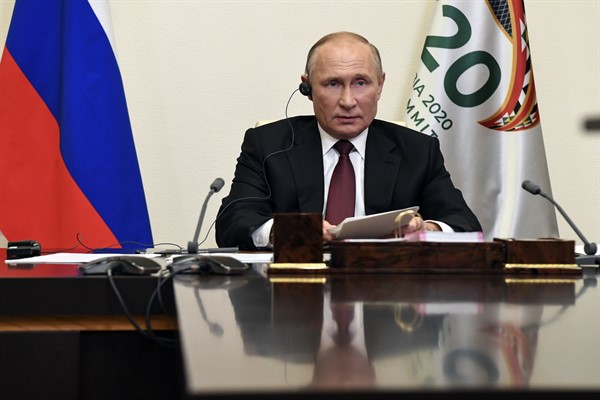Western outrage over Russian President Vladimir Putin’s illegal war of aggression in Ukraine has prompted calls to eject Russia from apex institutions of global cooperation, most notably the Group of 20 and the United Nations Security Council. While this impulse is tempting, efforts to exclude Russia from both institutions would be imprudent and likely futile, given the diverse membership of the former and U.N. Charter provisions regarding the latter. Rather than tilt at windmills, the United States and its allies should use both forums to shame Moscow for its criminal actions, while sharpening the already punishing sanctions they have deployed against Russia.
The urge to ostracize Russia is now widely shared across the U.S. political spectrum, notwithstanding initial efforts by former President Donald Trump, his nationalist acolytes in the Republican Party, and their media echo chamber to excuse Putin’s behavior. GOP legislators have been at the forefront in calling for Russia to be deprived of its permanent seat on the Security Council, where it has used its veto power to block any resolution condemning its invasion. “Russia must be exiled from the international community,” Republican Sen. Marsha Blackburn of Tennessee insisted in late February. “Putin is attempting to rebuild the Soviet Union and his ambassador should not be allowed to veto the United Nations’ response to Russian aggression.”
More recently, U.S. President Joe Biden announced his support for ejecting Russia from the G-20 and is consulting with Washington’s allies about blocking its attendance at the group’s October summit in Bali, Indonesia. Last week, U.S. national security adviser Jake Sullivan explained the Biden administration’s position on Russia’s participation in the Bali summit, saying that “we believe that it cannot be business as usual for Russia in international institutions and in the international community.”

